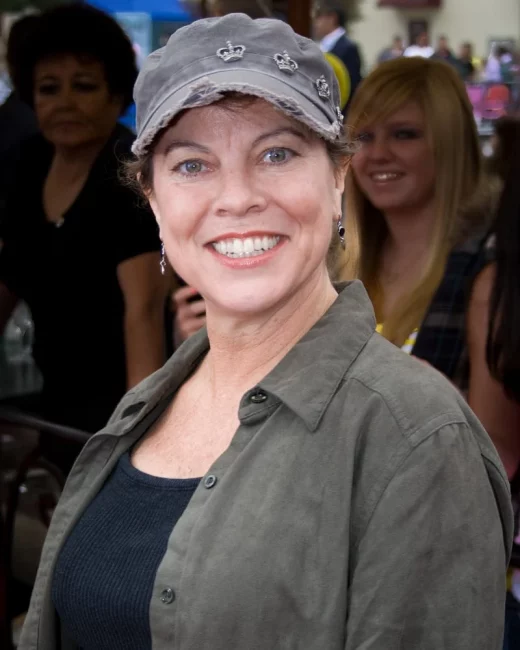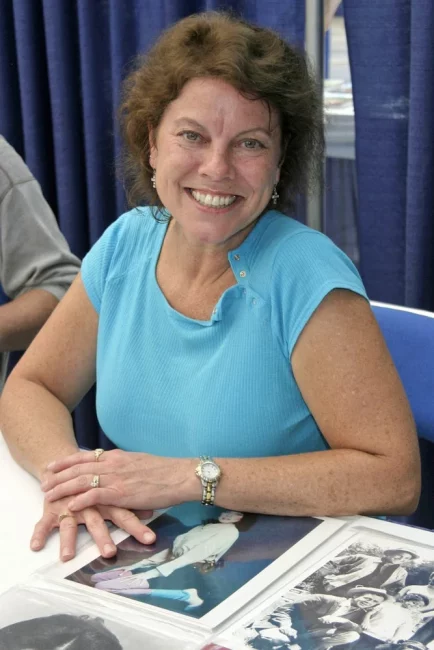Actress Erin Moran passed away Saturday, April 22 at the age of 56. Moran was best known for her role as Joanie Cunningham on “Happy Days” between 1974 and 1984. According to a CNN report, Indiana authorities responded to a 911 call about an unresponsive female on Saturday afternoon. Moran was pronounced dead at her mother-in-law’s mobile home soon thereafter.
No drugs were found at the scene. But, that piece of information didn’t seem to matter much. It often doesn’t in the deaths of current or former substance users. More on that shortly.
As of now, it is unclear to what extent drug or alcohol use impacted Moran. Various reports, and people who actually — and allegedly — worked with or knew her over the years have labeled her a troubled soul. They claim Moran suffered from depression and an unfulfilled desire to break back into show business. Her inability to do so resulted in her falling on hard times, including once being evicted from a trailer park due to partying and late-night bar trips.

News outlets, acquaintances and fans the world over are digging into her past to determine a reason for her untimely death. To be fair, it is human nature to make connections based on past knowledge to find answers. But, something strange happens when a current or former user’s death is involved. Something beyond the typical, face-value internet negativity that comes with the territory. Condolences have subtext. Tweets and Facebook posts insinuate things. Meaning well hides a double meaning. People assume the worst, theorize without evidence and are far too quick to make assumptions. We have all heard it before, or may be guilty of saying it ourselves: It must have been because of drugs or alcohol. This is an oversimplification. It devalues the individual and judges their entire life on past transgressions alone.
The phrase “innocent until proven guilty” doesn’t exist during responses to ambiguous deaths. Case in point: the reporting about Erin Moran’s death on the celebrity gossip site, Page Six. Its article from April 23, 2017 titled, “Were drugs to Blame for Erin Moran’s death?” claims people believe Moran died from a heroin overdose. No credible evidence exists of Moran having a heroin use problem before her death. Then, exactly a day later, the same site presented a new article, “’Happy Days’ star Erin Moran died of throat cancer” after the facts were revealed. Like all such sites, the information came from somewhere else — Page Six claims the report originated on Daily Mail. Updating information is nothing new for media sources. The snowball effect of such unfounded, sensationalist reports can tarnish names, accolades and legacies.
Unfortunately, it’s not just news sources or the social media masses that play judge and jury. Erin Moran’s co-star and friend, Scott Baio, the Chachi half of the spinoff series “Joanie Loves Chachi,” was quick to pass judgement of his own. However unintentional it may have been, comments such as these create and reaffirm a precedent for talking about substance users’ deaths:
“My thing is, I feel bad because her whole life, she was troubled, could never find what made her happy and content. For me, you do drugs or drink, you’re gonna die. I’m sorry if that’s cold, but God gave you a brain, gave you the will to live and thrive and you gotta take care of yourself.”
Scott Baio, Moran’s Co-Star and Friend
Offhand assumptions like these are hard to interpret as anything but the typical ‘they-had-it-coming’ narrative. To stress the point, Baio’s remarks came before authorities even released the autopsy report. Like many, his short-lived, pseudo-condolence makes way for an often misguided, uninformed or reactionary pass of judgement that only former or current addicts seem to receive. Backlash has caused Baio to redact his initial drug abuse claims, weakly attributing them to a fake Facebook article.
This is a harmful way of framing these sorts of deaths. And it is something we see time and time again. When “Star Wars” legend Carrie Fisher passed away, rumors immediately attributed her death to past cocaine use.
Taken to the extreme, this is the Heath Ledger effect. The world was quick to throw out their own opinions and theories about the young actor’s demise. The most vocal one stuck — playing the Joker in Christopher Nolan’s Batman film led to his death. The false story of Ledger’s drug-fueled, method-acting psychosis reigns supreme. It overshadows the real reason, an accidental overdose, but it doesn’t seem to matter. Social media and the internet made the initial theories last forever.

The same thing is happening with Erin Moran. The most sensational judgments outweigh the truth. Those like Scott Baio stoke the conspiracy until it becomes a perceived fact. Moran’s autopsy reveals her cause of death was due to complications from Stage 4 cancer. But will people remember it as such? When the toxicology report is finally released in the coming weeks or months, it might not matter if she was using substances or not. The public may have already made up their mind by then, inflicting permanent damage to her legacy. In an era of fake news, reaching for details that may or may not exist has irreversible impacts.
Do your part to bypass such thinking
Avoid clickbait articles that make in-the-moment assumptions and up-to-the-minute revisions when real evidence emerges. Hold people and sources accountable for sharing such material, and for the broad stroke by which it paints current and former substance users. Be sure to hold judgments until facts are presented, and even then, try to understand the complexity of lives burdened with substance use disorders. The culmination of a life and death deserves than a headline.
Come to the place where assumptions and generalizations are replaced with compassion and care. The Recovery Village runs a network of treatment centers across the United States and is dedicated to getting you or your loved one the drug or alcohol rehabilitation they need. Learn more today.
The Recovery Village aims to improve the quality of life for people struggling with substance use or mental health disorder with fact-based content about the nature of behavioral health conditions, treatment options and their related outcomes. We publish material that is researched, cited, edited and reviewed by licensed medical professionals. The information we provide is not intended to be a substitute for professional medical advice, diagnosis or treatment. It should not be used in place of the advice of your physician or other qualified healthcare providers.